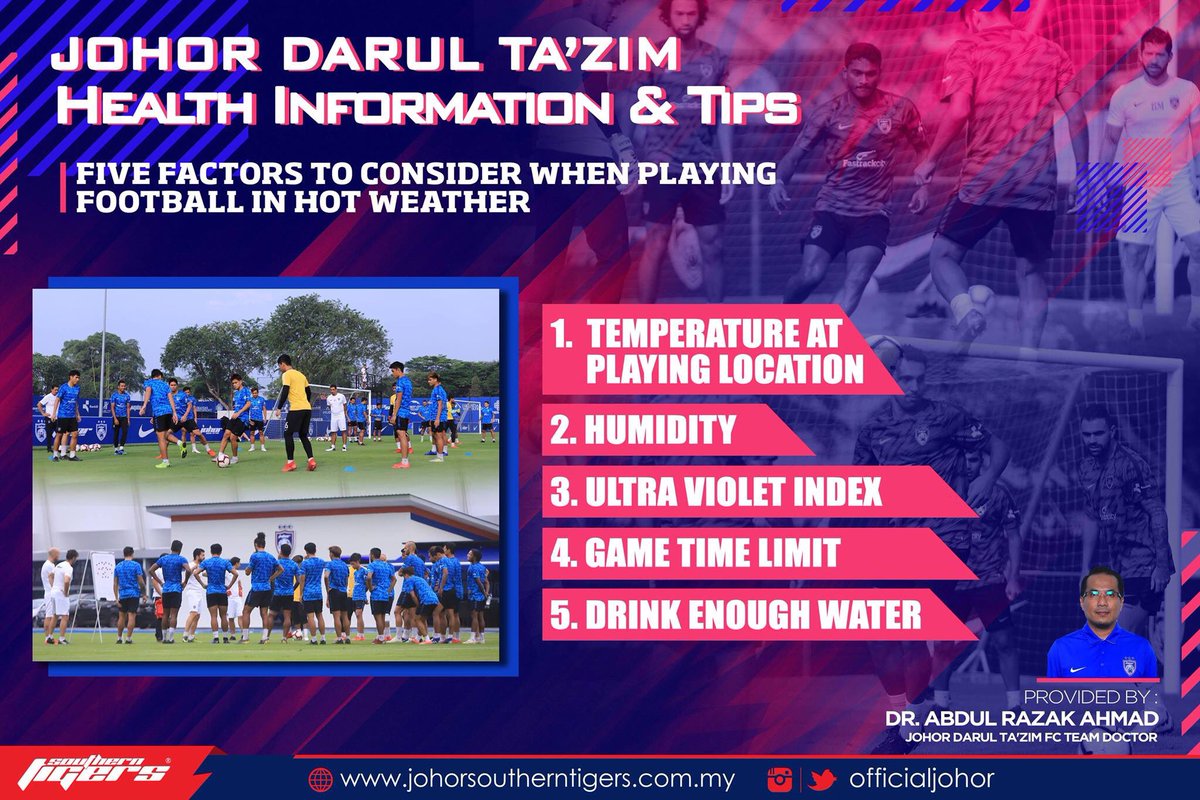Playing football in hot weather can affect a player's health and focus because the body temperature will increase and the player will sweat a lot.
Playing football in hot weather can affect a player's health and focus because the body temperature will increase and the player will sweat a lot.
This will cause mineral salts required by the body to reduce tremendously through sweat.
[1/10]
If the situation persists, blood pressure will drop and heart rate will increase.
As a result, the player might suffer muscle cramps, fatigue, dizziness, fainting and, most dangerously, heat stroke that can be fatal.
[2/10]
This can be avoided if we know the following FIVE things before playing football in hot weather.
[3/10]
1. TEMPERATURE AT PLAYING LOCATION
A game should be stopped if the temperature exceeds 32°C for adults and 28°C for children.
[4/10]
WBGT (Wet Bulb Globe Temperature) can be used to measure the temperature at a playing location but it is sufficient to check through apps available on the Internet.
[5/10]
2. HUMIDITY
Humidity should not exceed 60%. High humidity can cause players to sweat more, increase their body temperature and make them struggle to breathe.
[6/10]
3. ULTRA VIOLET INDEX
A high Ultra Violet Index can cause sunburn. It can be managed by using UV protection creams suitable with the temperature and time of day.
[7/10]
4. GAME TIME LIMIT
The playing time of a game should not be more than 2 hours if the weather is hot and the temperature at a playing location is less than 32°C. It can cause prolonged exposure to hot weather.
[8/10]
5. DRINK ENOUGH WATER
200ml and 300ml of water should be consumed between for every 20-30 minutes after playing. Observe the colour of your urine. If it's dark yellow, drink more water because it is a sign of dehydration.
[9/10]
This health information is provided by Dr. Abdul Razak Ahmad, team doctor of Johor Darul Ta'zim FC (JDT). Luaskan Kuasamu Johor.
[10/10]

Ulasan
Catat Ulasan